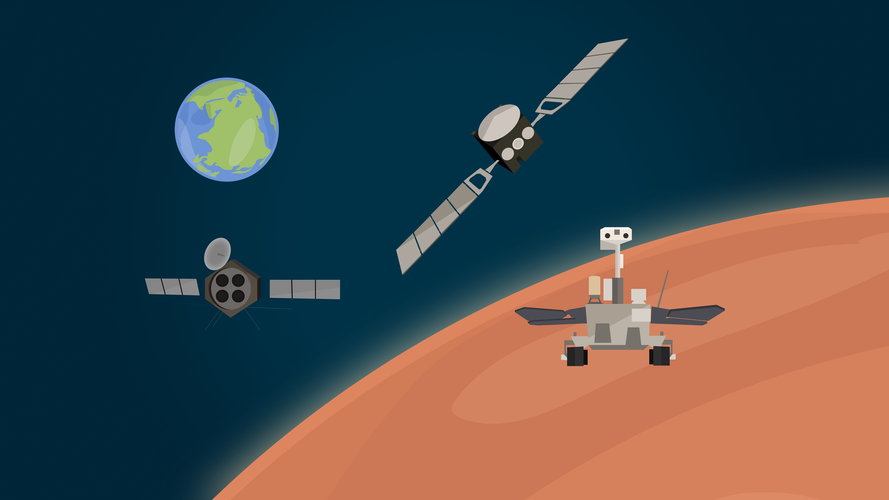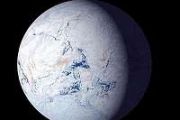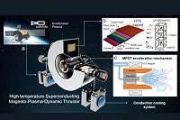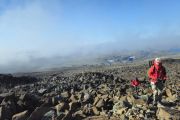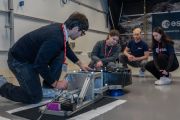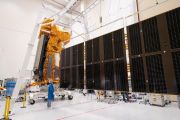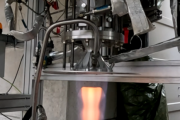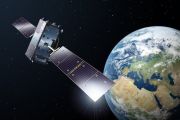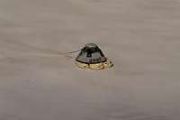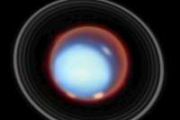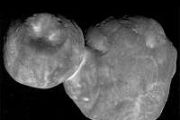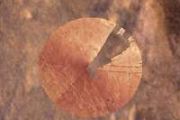
Copernical Team
Vice President Highlights STEM in First National Space Council Meeting
 Vice President Kamala Harris chaired the first National Space Council meeting of the Biden-Harris Administration Wednesday, Dec. 1 at the U.S. Institute of Peace in Washington. Prior to the meeting, President Biden expanded the number of participants of the council by executive order, reflecting the Biden-Harris administration's broad priorities and creating the largest, most diverse space counc
Vice President Kamala Harris chaired the first National Space Council meeting of the Biden-Harris Administration Wednesday, Dec. 1 at the U.S. Institute of Peace in Washington. Prior to the meeting, President Biden expanded the number of participants of the council by executive order, reflecting the Biden-Harris administration's broad priorities and creating the largest, most diverse space counc Test tanks fuelled for ESA's Themis reusable first stage
 Recently completed tests of two propellant tanks set a first technological milestone in the ESA reusability roadmap towards the demonstration of a reusable first stage vehicle called Themis.
Through the Themis programme, ESA aims to assess the economic value of reusability for Europe while investing in new technologies for potential use in ESA's future fleet of launch vehicles.
The T
Recently completed tests of two propellant tanks set a first technological milestone in the ESA reusability roadmap towards the demonstration of a reusable first stage vehicle called Themis.
Through the Themis programme, ESA aims to assess the economic value of reusability for Europe while investing in new technologies for potential use in ESA's future fleet of launch vehicles.
The T NASA Leadership visits Marshall to discuss Artemis, future exploration
 NASA Administrator Bill Nelson and Deputy Administrator Pam Melroy visited the agency's Marshall Space Flight Center in Huntsville on Nov. 29 and 30 for tours and briefings on Marshall's role in the Artemis program and other capabilities that enrich many facets of the nation's space exploration endeavors.
It was their first visit to Marshall in their current roles.
Nelson and Melroy
NASA Administrator Bill Nelson and Deputy Administrator Pam Melroy visited the agency's Marshall Space Flight Center in Huntsville on Nov. 29 and 30 for tours and briefings on Marshall's role in the Artemis program and other capabilities that enrich many facets of the nation's space exploration endeavors.
It was their first visit to Marshall in their current roles.
Nelson and Melroy NASA's Second Pepper Harvest Sets Record on Space Station
 The longest - and perhaps the spiciest - plant experiment in the history of the International Space Station, Plant Habitat-04 (PH-04), concluded recently, 137 days after it began. On Nov. 26, Expedition 66 Flight Engineer Mark Vande Hei harvested and with other members of the crew sampled some of the 26 chile peppers grown from four plants in the orbiting laboratory's Advanced Plant Habitat (APH
The longest - and perhaps the spiciest - plant experiment in the history of the International Space Station, Plant Habitat-04 (PH-04), concluded recently, 137 days after it began. On Nov. 26, Expedition 66 Flight Engineer Mark Vande Hei harvested and with other members of the crew sampled some of the 26 chile peppers grown from four plants in the orbiting laboratory's Advanced Plant Habitat (APH Rocket Lab readies Electron for lift-off in fastest launch turnaround yet
 Rocket Lab USA has revealed its next Electron mission is scheduled to take place during a launch window that opens on December 7, 2021, fewer than three weeks since Rocket Lab's most recent mission on November 18, 2021. These two missions for BlackSky occur 19 days apart and represent Rocket Lab's quickest turnaround in its launch history.
The "A Data With Destiny" mission for BlackSky man
Rocket Lab USA has revealed its next Electron mission is scheduled to take place during a launch window that opens on December 7, 2021, fewer than three weeks since Rocket Lab's most recent mission on November 18, 2021. These two missions for BlackSky occur 19 days apart and represent Rocket Lab's quickest turnaround in its launch history.
The "A Data With Destiny" mission for BlackSky man SpaceX Starlink launch from Florida delayed to Thursday
 SpaceX's plan to launch 53 more Starlink spacecraft from Florida has been delayed a day to Thursday, as the company struggles with plans to develop a second generation of the communications satellites.
SpaceX gave no immediate reason for the postponement.
With the rescheduling, a Falcon 9 rocket is scheduled to carry the satellites into orbit at 6:28 p.m. EST from Complex 40 at C
SpaceX's plan to launch 53 more Starlink spacecraft from Florida has been delayed a day to Thursday, as the company struggles with plans to develop a second generation of the communications satellites.
SpaceX gave no immediate reason for the postponement.
With the rescheduling, a Falcon 9 rocket is scheduled to carry the satellites into orbit at 6:28 p.m. EST from Complex 40 at C Test tanks fuelled for ESA’s Themis reusable first stage
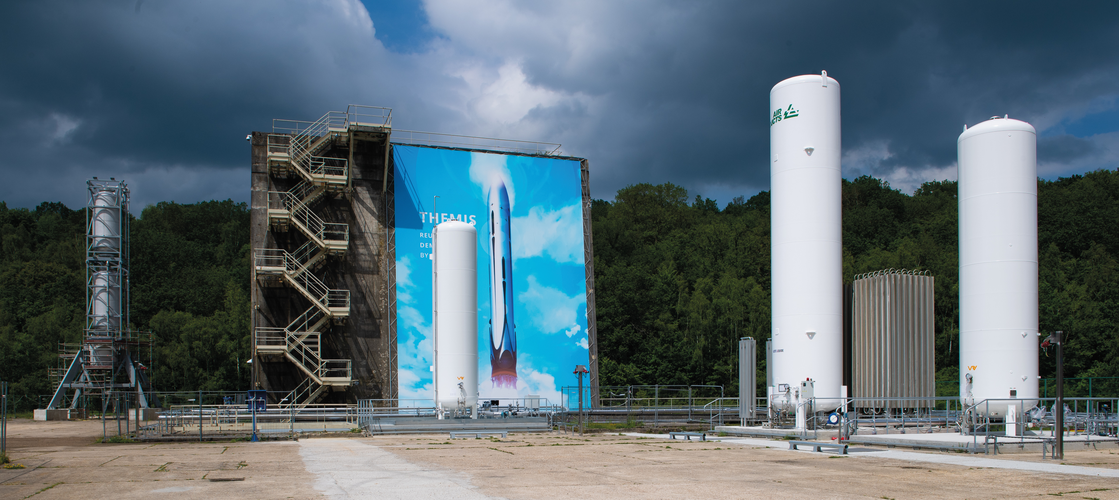
Recently completed tests of two propellant tanks set a first technological milestone in the ESA reusability roadmap towards the demonstration of a reusable first stage vehicle called Themis.
Soon, 1 out of every 15 points of light in the sky will be a satellite

I'm outside at my rural Saskatchewan farm, chatting with my neighbors who I've invited over to appreciate the night sky through my telescope. After exclamations and open-mouthed wonder over Saturn's rings, and light that has been traveling through space for more than two million years to reach our eyes from the Andromeda Galaxy, our conversation inevitably turns to the pandemic, our work-from-home arrangements and complaints about rural internet. My neighbor casually mentions they've just switched to using Starlink for their internet provider.
I glance up and notice a bright satellite moving across the sky, almost certainly a Starlink, since they now make up almost half of the nearly 4,000 operational satellites and they're extremely bright. I take a deep breath and carefully consider how to discuss the substantial cost that we're all going to have to pay for Starlink internet.
I don't blame my neighbors for switching.
Carrier rocket takes off from Sichuan province
 China launched a Long March 3B carrier rocket early on Saturday morning to send a communication satellite into space, according to China Aerospace Science and Technology Corp, the country's leading space contractor.
The State-owned company said the rocket blasted off at 12:40 am from the Xichang Satellite Launch Center in Sichuan province and later deployed the ChinaSat 1D satellite in its
China launched a Long March 3B carrier rocket early on Saturday morning to send a communication satellite into space, according to China Aerospace Science and Technology Corp, the country's leading space contractor.
The State-owned company said the rocket blasted off at 12:40 am from the Xichang Satellite Launch Center in Sichuan province and later deployed the ChinaSat 1D satellite in its 
